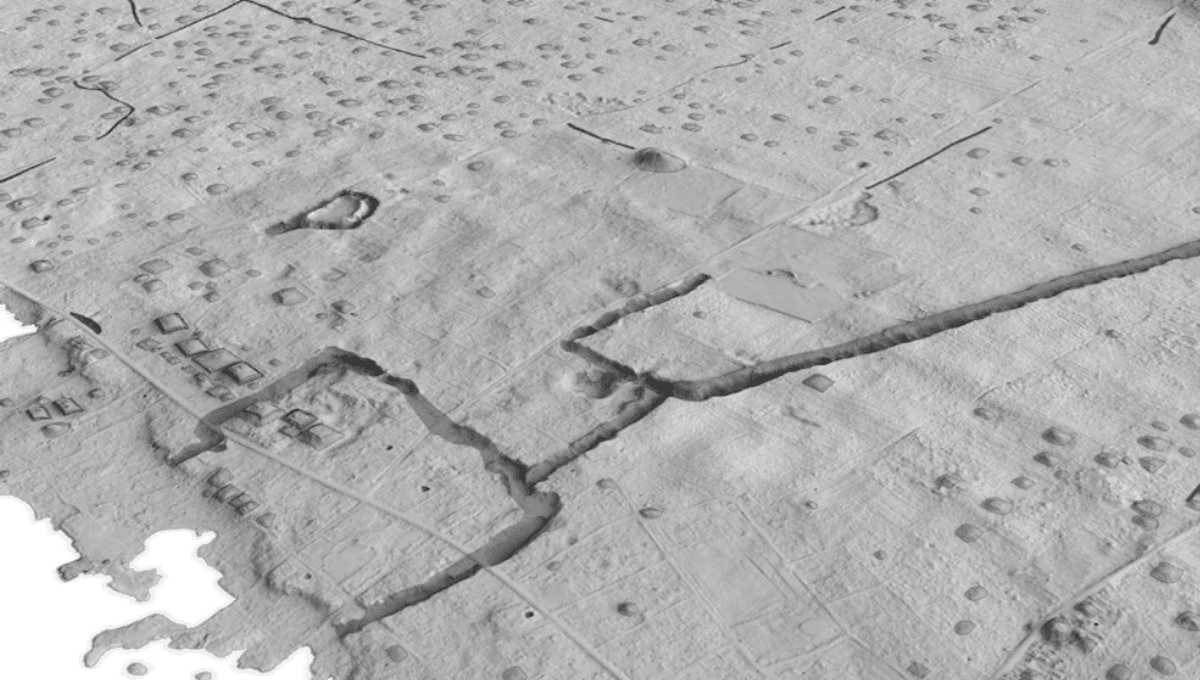
Lasers have been used to uncover a long-lost city’s remains on the Tongatapu, the main island of Tonga. Placed along the idyllic Pacific shores and palm trees, the ancient ruins show that urban environments emerged in the region way earlier than thought – and long before Europeans arrived.
Archeologists at the Australian National University used aerial LiDAR scanning to map the landscape of Tongatapu, which hosts Tonga’s capital city, Nukuʻalofa.
This revealed imprints of settlements that shared the traits of other urban settlement systems found elsewhere in the world, including extensive roads, fortifications, communal structures, and thousands of earth mounds.
They also found evidence of large soil mounds called sia heu lupe that were constructed for the sport of pigeon snaring.
When people think of early cities they usually think of traditional old European cities with compact housing and windy cobblestone streets. This is a very different kind of city
Phillip Parton
“Earth structures were being constructed in Tongatapu around AD 300. This is 700 years earlier than previously thought,” lead study author Phillip Parton, PhD scholar of archaeology at the Australian National University in Canberra, said in a statement.
“As settlements grew, they had to come up with new ways of supporting that growing population. This kind of set-up – what we call low density urbanization – sets in motion huge social and economic change. People are interacting more and doing different kinds of work,” he said
This city emerged long before the arrival of Europeans in Tongatapu in 1773 CE, dispelling the outdated belief that the South Pacific was devoid of complex human societies before colonization.
Researchers have previously argued that Pacific islands didn’t develop urban settlements because their population density was too low. The discoveries in Tongatapu challenge this view by providing evidence of low-density urbanization; a unique form of city that took a different path from the European model of urban settlements.
“Urbanization is not an area that had been investigated much until now. When people think of early cities they usually think of traditional old European cities with compact housing and windy cobblestone streets. This is a very different kind of city,” Parton added.
“Having this type of information really adds to our understanding of early Pacific societies,” he continued.
Part of this discovery in Tonga is thanks to new technologies like LiDAR. First developed in the early 1970s for space exploration, this laser-based imaging technology allows archaeologists to survey portions of land and reveal evidence of human structures that have since been lost to nature.
In recent years, this cutting-edge method has been used to show the Amazon rainforest in South America was once a bustling hive of vast cities. Much like the cities of pre-Columbian America, the researchers believe the centuries-old cities of Tonga were likely brought to ruin in the age of colonization.
“It didn’t collapse because the system was flawed; it was more to do with the arrival of Europeans and introduced diseases,” Parton explained.
“This is just the beginning in terms of early Pacific settlements. There’s likely still much to be discovered.”
The study is published in the Journal of Archaeological Method and Theory.
Source Link: Long-Lost Remains Of Ancient City In South Pacific Rewrite History